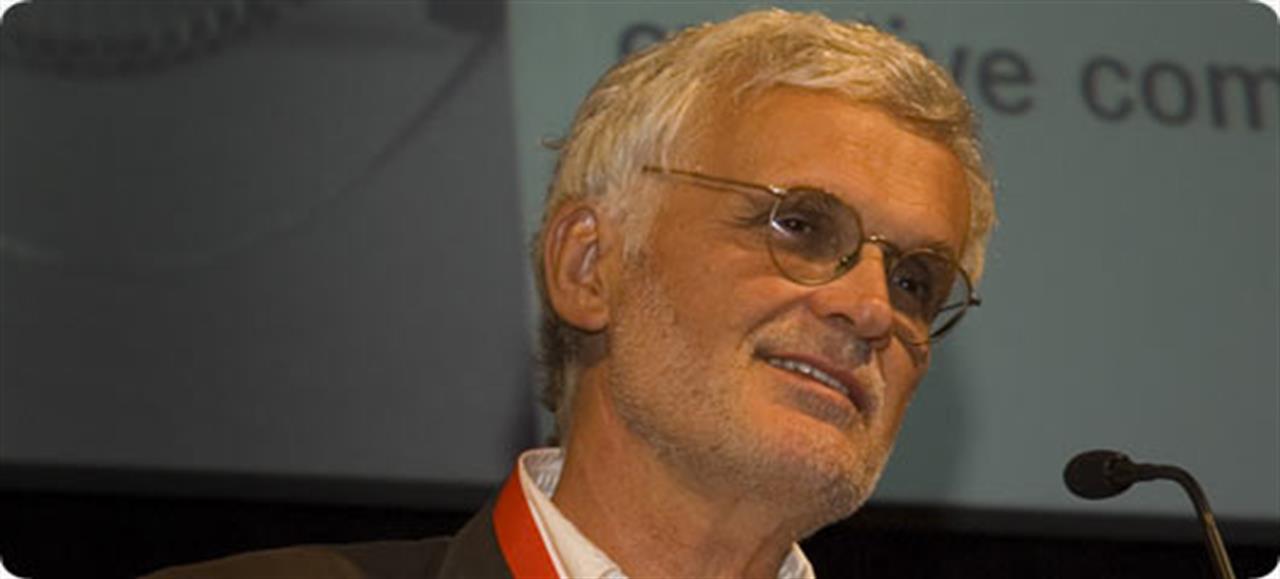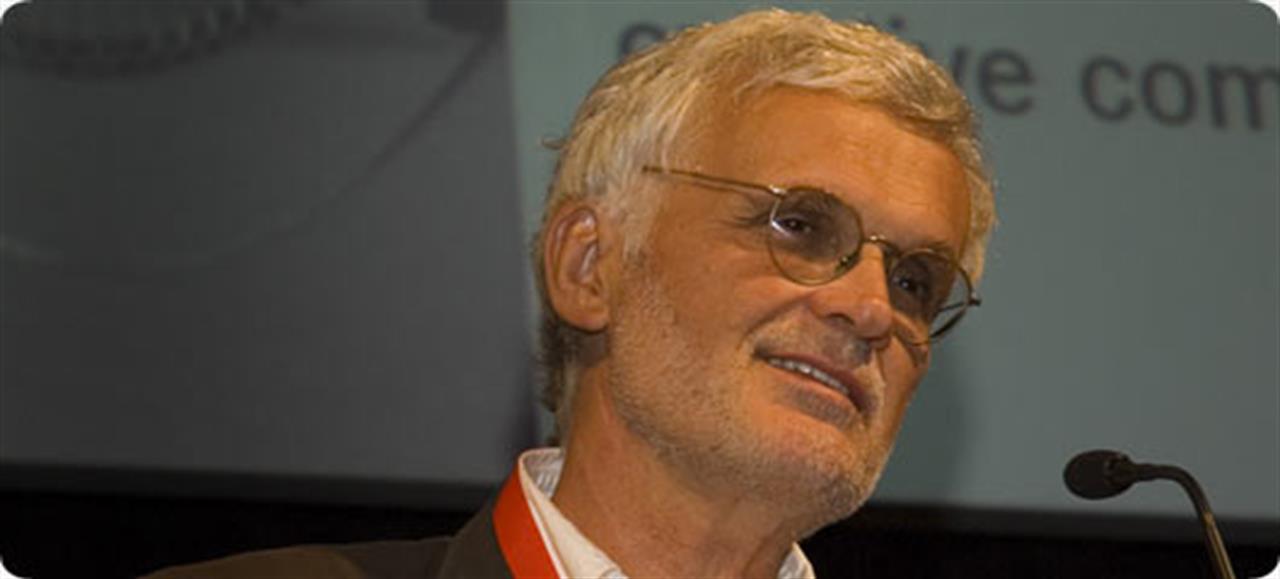
Dear Ezio,
What a colourful crowd on Thursday at the launch of the European social innovation pilot. More than one hundred people from all sorts of sectors and countries, each one with a different idea of what social innovation is and does. But you summarised the core of the challenge in this question: “Is social innovation a bandage for the current system’s failures or is it the answer to an emerging new society – in particular the relationship between the EU and its people?”
This is the question for all of us and the EU. Yes, President Barroso addressed this in his speech, but he did not take a position. I’m not surprised.
We could do a simple test asking the President or anybody else to choose between two quotes from books that most of you should have read – at least seen on screen: Il Gattopardo (The Leopard) and The Brothers Karamazov. The most famous quote of the former is “If we want things to stay as they are, things will have to change”. The latter one starts with a quote from St John’s Gospel: “Verily, verily, I say unto you, except a corn of wheat fall into the ground and die, it abideth alone: but if it die, it bringeth forth much fruit”.
What quote do think the President would choose? If you are taking the test too, be careful: your answer reveals your vision.
On Thursday President Barroso endorsed the initiative as “a cornerstone of Europe 2020”, the economic strategy of the EU to steer a smart, sustainable and inclusive economy for growth and jobs. He praised citizens and civil society organisations to have been at the forefront of social innovation in Europe. His speech was impressive and echoed by 2 other Commissioners: Andor and Geoghegan-Quinn.
However, his tone was different on Tuesday. I had the opportunity to listen to the President’s speech last week when I attended the Europe 2020 Forum organised by the Lisbon Council. Just 2 day before Barroso forgot the role of civil society in Europe 2020 and reduced the strained relationship between the EU and its citizens to a mere communication problem. In that case, social innovation became a shallow communication opportunity embodied by people like Prince Charles and the various CEOs of energy companies that he dutifully bowed to.
What’s going on in the EU? Has someone, in some secluded office up in the echelons of some EU building realised that social innovation could be turned into an easy branding exercise to cover up the fact that business is carried out as usual or is there a task force hidden in the Brussels corridors trying to reform the EU from within? Whatever is teh the thruth we are sure the President loves social innovation, insofar as it does not mess up things and question the status quo too much.
I have a different view. Social innovation is first of all an opportunity to redefine the relationship between the EU and its people. The European Institutions have to transform from a technocratic apparatus in enabling agencies to encourage and support civic initiatives across borders and boundaries. People have to do some homework as well. It’s time for them to get up from the armchairs, leave their TV remote controls and turn from passive voters and consumers into pro-active citizens, able to take responsibility for the future of their Union, willing to co-design and co-implement the solutions to the challenges it faces. Multi-stakeholder governance would be the framework, reciprocal engagement would be the modality.
This would be a radical change for the EU that can start only overcoming the trauma of WWII and fear of engaging people not just in terms of communication – as endlessly repeated in Brussels starting with Plan D – but establishing a new political sphere which combines Europe with the passions, values and dreams of its people. We need a new European dream for the 21st century.
The social innovation agenda offers such a platform but presents some challenges. First of all it must reach people beyond the closed circles of innovation geeks and Brussels technocrats. We need innovation that is truly social. We need in particular to take on board the 11m people involved in the social economy as mentioned by Commissioner Andor.
To reach the people who have been involved in the social sector we must engage their values and emotions. These are their drivers. We must engage them in projects to show that social innovation delivers to people and communities, especially those left behind or failed by the actual big boys (the Member States and the Big Corporations). It’s not just another nice label.
Secondly, the EU must prove it is serious about this agenda and provide the right instruments to support its development. On Thursday a delegate from Germany said that the EU could prove it is serious by creating a designated budget line of over €1bn in the new financial perspectives 2014 – 2020. Diogo Vasconcelos proposed to establish a European fund for social innovation to be created using unspent structural funds. The fund would operate as a wholesaler to benefit national agencies such as NESTA or the Calouste Gulbenkian Foundation. Are these the instruments that will make social innovation – innovation by the people and for the people – truly flourish?
In such a climate – cuts! – I would chose a different path and improve access to European funding that is already available. I would focus on seed grant-funding for start-up social enterprises. I called for micro-PPPs (Public Private Partnerships), which would just need to improve the implementing rule for small grants (up to €50,000), reducing the administration burden and making it easier to attract private match-funding. This way, the EU could become a catalyser of hundreds – even thousands – of new social enterprises across Europe generating jobs and growth.
The EU also needs to pay more attention to the existing civil society and social economy. Salvatore Vetro in charge of ENSIE – the network of social integration enterprises – made a desperate call for help. He claimed the for-profit corporations run an unfair competition stepping in new markets created by social enterprises stealing the innovation without sharing the benefits. How can we help them to stay in the market?
In my view protectionism doesn’t work anymore in a network society and globalizing market. Not even governments can protect themselves: they are exposed to hackers, vulnerable to financial markets and incapable of tracking terrorists. We need a different mind-set to tackle 21st century challenges.
I don’t have all the answers but the keynote speaker on Wednesday dinner confirmed I’m experimenting in the right direction. Francis Beland is Vice President of the Prize Foundation. He and his team organise multi-million dollar competitions to tackle social challenges such as developing a new technology to clean up seawater surface from oil spillages. He believes in competition to harnessing global intelligence and gets large corporations to pay for it.
Together with the Euclid team I’m developing a competition to tackle 6 social challenges in Naples – an international symbol of failure. Let’s see if true, bottom up social innovation can succeed where everybody else has so far failed.
Si può usare la Carta docente per abbonarsi a VITA?
Certo che sì! Basta emettere un buono sulla piattaforma del ministero del valore dell’abbonamento che si intende acquistare (1 anno carta + digital a 80€ o 1 anno digital a 60€) e inviarci il codice del buono a abbonamenti@vita.it

